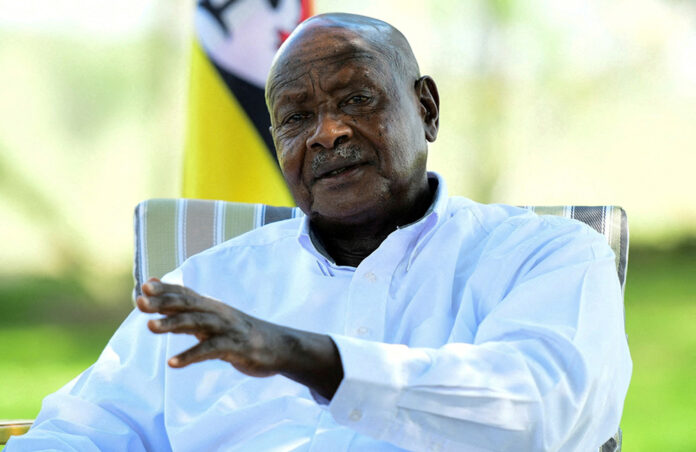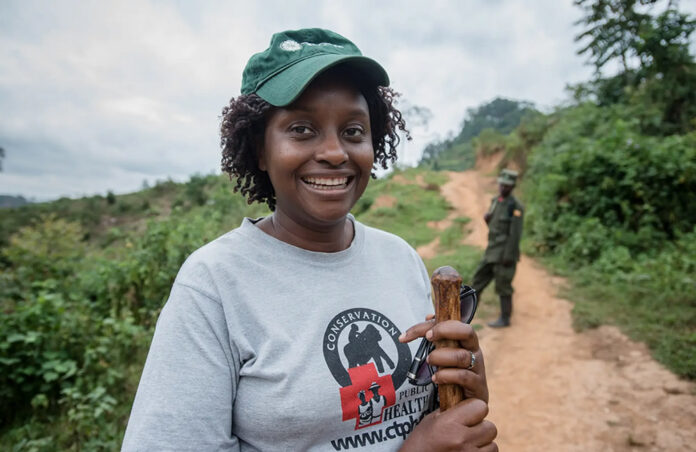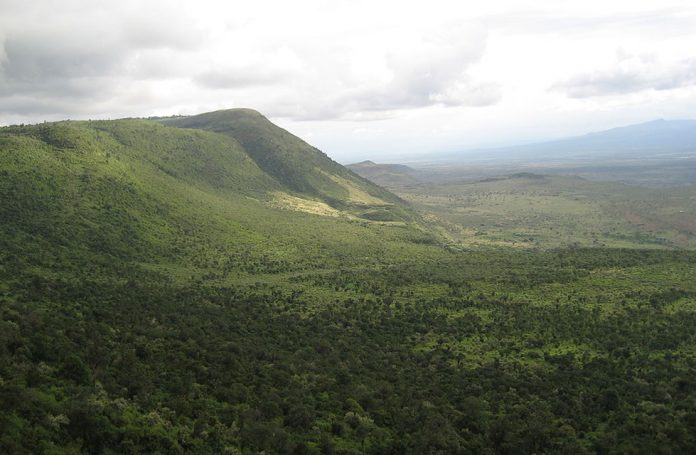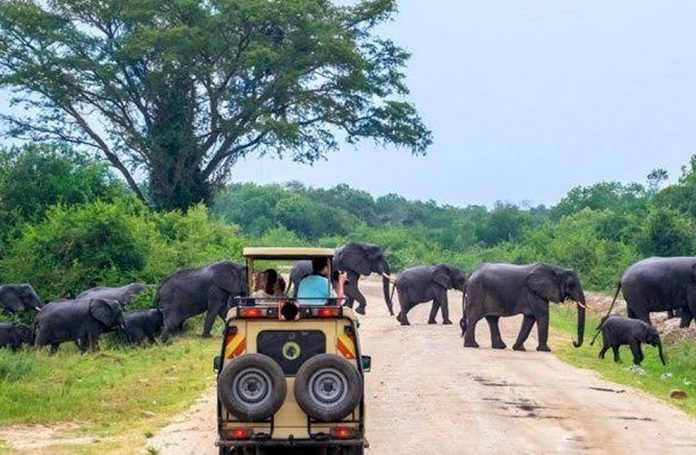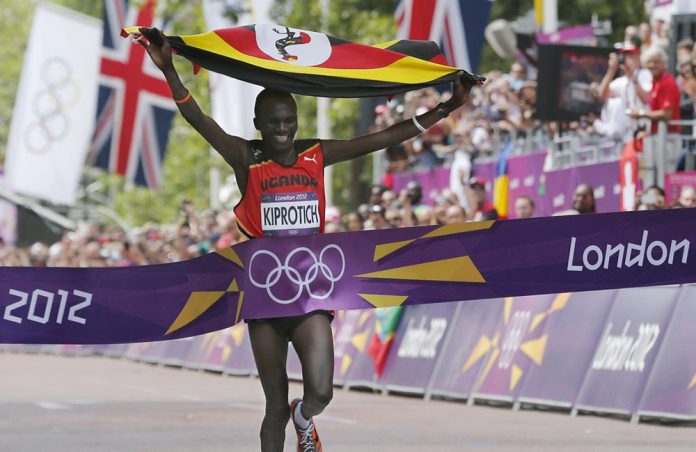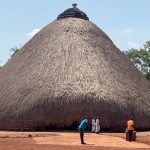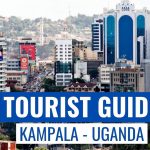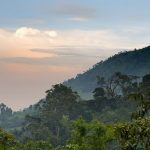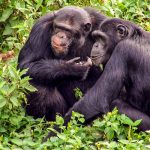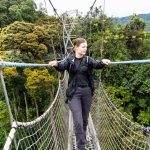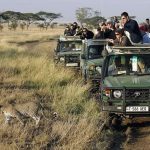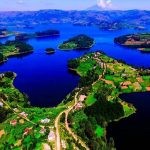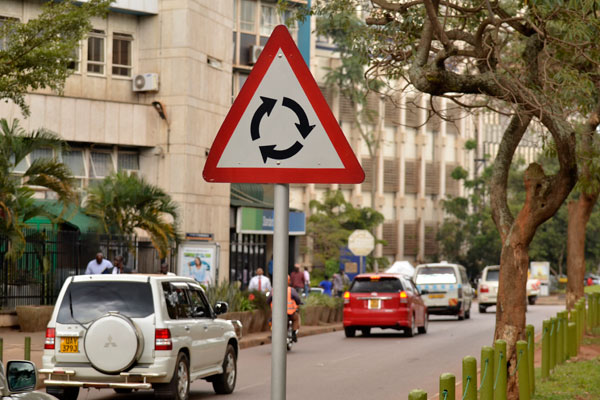Recognition of prominent women who have exhibited exemplary leadership in the conservation field was among the key highlights of the celebrations to mark 50 years of Kidepo Valley National Park on 22nd August, 2013 at the Kampala Serena Hotel.
The function was graced by the minister of Tourism,Wildlife and Antiquities, Dr. Maria Mutagamba,the US ambassador to Uganda Mr. Scott DeLisi and many distinguished personalities. The recognized women got plaques and cash prizes.
The Uganda Wildlife Authority (UWA) has deliberately gone out to target and build the professional skills of women. This was after the realization that natural resource management and conservation requires women’s participation and empowerment to mitigate threats to biodiversity.
There were few women involved in biodiversity and conservation leadership and African women had to be encouraged to break through the largely male-dominated world of business and leadership. There are several women who have shown exemplary leadership in the field of conservation and those who have chosen to take on careers in conservation have shown that they can match and even surpass men in making key contributions to this important field. These mentor young women in conservation career paths.
USAID / Uganda Tourism for Biodiversity Program implemented by African Wildlife Foundation in partnership with Uganda Wildlife Authority are therefore launching a ‘Women in Conservation Leadership Program’ to celebrate and recognize outstanding women involved in conservation and wildlife fields in Uganda.
The inaugural awards are focusing on women working with UWA. Subsequent ones will focus on all women involved in conservation in the country. This is planned to be an annual event and we believe that, with support from other partners, it will help to encourage and challenge other youth to join conservation and mentor others.
The following are profiles of top women who were selected from over 35 nominated UWA women staff. They were chosen by a select committee made up of USAID/ Uganda Tourism for Biodiversity in partnership with UWA. Other five women were selected randomly based on their experience and dedication to conservation
Margaret Driculu
Dr. Margaret Druciri is a wildlife veterinarian with the Uganda Wildlife Authority who has been working in conservation since 1997. Hailing from Arua District, Dr. Drucili holds a Masters Degree in Wildlife Health and Management and is currently pursuing a PhD in veterinary medicine from Makerere University. From 1997 to 2004, Dr. Druciri worked in a research Project investigating the population viability of lions in Queen Elizabeth National Park and Murchison Falls National Park while addressing lion-people-livestock conflicts. She mastered lion behavior as well as lifestyle and can identify all their whisker patterns, ear notches or color of their eyes the way human fingerprints differentiates us. She gave each of them a name. She got so attached to lions and, in April 2003, rescued a big male lion from the outskirts of Masindi town where it was terrorizing people and predating their livestock. People call her the Lion woman.
In 2005, UWA asked Dr. Margaret to help on the eland project at Kidepo Valley National Park. Later, she was recruited and deployed at Queen Elizabeth Protected Area in 2006 where she works up to date. She now heads the Research and Monitoring unit in Queen Elizabeth protected area where she has rescued injured, rescues injured, orphaned or problem causing wildlife. What people admire about her is when she puts a dying lion on a drip hanged on the branches of a tree, knowing that if the lion managed to get up, she could be its next food. Her other work includes monitoring and management wildlife and population health as well as wildlife surveys and general park management.
Norah Kazigati Mbubi
Norah Kazigati Mbubi is based in Kibale National Park as a Community Conservation Ranger. Her work is to build and maintain good relationship between the Park and the communities. Norah has been working with Uganda Wildlife Authority (UWA) for 12 years. Her passion to conserve wildlife began during her O’Level when she was a member of Wildlife Clubs Uganda. Her best moment was in 2011 when she emerged the best female in range shooting using the LMG gun in the inter force sports competition which was held at Kigo shooting ground. Norah envisions more women working and getting involved in conservation. She wishes to see some reserves elevated into national parks. She also would like to see conflicts between animals and communities addressed and the gap between UWA and the communities bridged.
Maureen Arabuza
A head-ranger in the Lake Mburo National Park, Maureen is a mother of three children and a wife. She has been working with conservation for 13 years. She is part of the park patrol teams and sometimes can be out for eight straight hours traversing the bush to safeguard animals from poachers and encroachers.
Olivia Biira
Olivia Biira has 14years conservation experience. She started her work career as a community conservation ranger in Rwenzori Mountains National Park and was later promoted to Warden; Community Conservation. UWA top management seconded her to work with Fauna and Flora International on the culture, values and conservation project as the team leader to ensure integration of the two parks cultural values into their respective management plans. She now works as the warden community conservation for Bwindi Impenetrable National Park where her major role is to increase community support for wildlife conservation.
Olivia has worked in five wildlife protected areas and coordinated conservation activities in 13 Districts. Her best memory was when UWA and the Obusinga bwa Rwenzururu signed a memorandum of understanding to manage the cultural sites in Rwenzori National Park. One elder said “This is the first good thing UWA has done to the people of Rwenzori” She remembered all the revenue sharing and other projects supported by UWA in the area and she realized how people value their heritage and the importance of culture in conservation.
Janet Okwel
Janet Okwel has worked with UWA for the last 17 years, having turned her back on accountancy and secretarial studies. She is senior guide in Murchison Falls National Park. Her tour-guiding work has exposed her to a diversity of people to whom she explains various issues to do with wildlife. Her best moment was in 2001 when she was awarded as best performer in the tourism department in the presence of the UWA board chairman. In 2009, Janet was taken to south England for a refresher course. Her vision is to see Uganda as the leading tourist destination in the world.
Lillian Nsubuga
Nsubuga Lillian has been UWA’s Public Relations Manager since February 2004. She was appreciated for her excellent performance and team work during the LCA Council meeting and breakfast meeting held at Serena Hotel, and described as being a role model to the rest of the employees. She greatly exhibited a spirit of teamwork, personal commitment and determination which raised the profile of the organization and what it stands for to international heights. She has a clean record with no warning letter of disciplinary hearing on file. She was appointed Ag. Director Legal and Corporate Affairs in 2011 and is noted for being an asset to the organization and for passionately protecting the image of UWA. Lillian is described as being an assiduous worker, selfless and always willing to work towards achieving organizational goals.
Margaret Kasumba
Margaret is a Senior Warden – Legal. She largely concentrates on prosecution of wildlife crime and is currently on an exchange programme with Tanzania National Parks (TANAPA) in Arusha, Tanzania. Since 2004, Margaret has accumulated over 10 years of conservation work with Uganda Wildlife Authority. Margaret’s drive has been the successful balancing of work with family and attributes it to the support from her husband, Cpt. Tumuhairwe Ruhanga, who usually looks after her children whenever she travels for official work. Her love for wildlife started in her child days. Unlike many people, Margaret says she used to love snakes, insects and other small animals. It made her sad when her siblings and friends always wanted to kill such animals. This passion grew stronger when Margaret joined Wildlife Clubs of Uganda in her high school. Margaret’s vision is to have a poaching-free Uganda where wildlife enjoy their natural habitat with no interference.
Justine Namara
Justine is a Senior Planning and Environmental Impact Assessment Officer with 10 years of experience in management planning for protected areas. Her work ensures that all areas of wildlife are analyzed and protected in ways that meet international environmental standards by conducting compliance monitoring for designed plans. Justine is the focal person on emerging issues which include oil and gas extraction in protected areas as well as hydro power development and mining. She is the environment ‘eye’ in regard to the development of such areas. Justine’s Vision is prosperous conservation with the right funding that is prioritized by government.
Pamela Anying
Pamela is Senior Warden for Forest Restoration in Mount Elgon National Park. She holds a degree in Botany and Zoology. Her research in wildlife for natural resource management was the preamble to her entry into UWA where she has been for the last 13 years. She has been involved in, among other things, aerial wildlife counting as co-pilot, community tourism projects and reforestation programs in several parks. Pamela’s work requires continuous monitoring of restoration activities to ensure that the communities follow the set guidelines. Her best moment was when UWA considered and sponsored her for training as a pilot in May 2002 in South Africa. Pamela is inspired by her parents who were engaged in enforcement work. Her father was a senior pilot in the Police Air Wing and her mother a Criminal Investigations Officer. Her vision is to be a world renowned conservationist.
Agnes Nakidde
Agnes is a Tourism Warden in Mount Elgon National Park. As a mother and a wife, she balances conservation of wildlife with her domestic responsibilities. Having worked in conservation for 12 years, Agnes says her job gives her opportunity to meet and interact with different people who come as tourists and end up as good friends. Her best moment was the day she qualified as Warden Tourism in Queen Elizabeth National Park to welcome and have a luncheon with the Duke of Edinburg. This was during the 2007 Commonwealth Heads Of Government Meeting (CHOGM) at the Queen’s pavilion. She loves it when she is invited to market Uganda tourism products at international fairs like in Berlin and London. Agnes’ vision is to see Uganda’s protected areas become a world class leading destination.
Dr. Gladys Kalema Zikusooka
Dr. Gladys founded Conservation Through Public Health (CTPH) in 2003 with Lawrence Zikusoka, Director of ICT for Development and her husband of 12 years. She has been working with conservation for 17 years. But her passion for conservation began back in 1988 when she revived a Wildlife Club at Kibuli Secondary School as the Chairperson. She attained her college degree in Royal Veterinary College, University of London in 1995 and worked as the first Veterinary Officer of Uganda National Parks from 1996-2000. She left to do a zoological medicine residency and masters in specialized veterinary medicine at North Carolina State University and North Carolina Zoological Park.
Dr. Gladys balances her roles, as a mother, wife and Founder and CEO of a young conservation NGO by spending as much time as possible with her children who have accompanied her to work in the national parks since they were two months old and are already very knowledgeable about wildlife. She has won several international conservation recognitions and is currently a Member of Uganda Wildlife Authority Board of Trustees.
Her CTPH’s mission is to promote biodiversity conservation by enabling people, wildlife and livestock to coexist through improving their health and livelihoods in and around protected areas in Africa. She believes people, wildlife and livestock can live in balance, health and harmony with local communities acting as stewards of their environment. While working as the first veterinary officer for UWA in 1996, Dr. Gladys led a team that investigated the first skin disease outbreak, scabies, in the critically endangered mountain gorillas of Bwindi Impenetrable National Park, which had led to the death of infant gorillas and was traced to people living around the park.
CTPH has three integrated programs: wildlife conservation, public health and sustainable livelihoods. Conservation: It works closely with UWA and community volunteers, to support wildlife health monitoring. One of the achievements is the Gorilla Research Clinic in Buhoma village, Bwindi, which analyses Feacal samples from gorillas, domestic animals and sickly humans through a partnership with the local hospitals, to trace the connection of the diseases being investigated in the animals. This proactive management of wildlife helps prevent disease outbreaks.
Community: CTPH works with local health centres to support Village Health and Conservation Teams (VHCTs). These are community volunteers promoting health and conservation at the household level and are sustained with income generating projects and Village Saving and Loan Associations (VSLAs). The VHCTs also promote community led water shed management. This has resulted in measurable improvements in community conservation and public health practices. Youth: CTPH engages the youth in conservation through community tele-centres and the Impenetrable Kids League where, in the process of learning technology and sports, they also learn about the integrated conservation and public health issues.
Lilly Ajarova
Lilly graduated from Makerere University and then pursued a postgraduate diploma in International Tourism Management from Vienna in 1996, Austria. Today, she boasts of a rich ten years plus’ experience in tourism development and environmental management. Her eight year term at UWA saw her serve in various senior management capacities, including public relations manager, marketing manager, and tourism development manager. These portfolios enabled Lilly represent UWA and the Uganda tourism and wildlife industry in various conferences, workshops, exhibitions and training programs in Africa and Europe.
She did a Masters degree in Business Administration (MBA) at Maastricht School of Management, Netherlands, and Eastern and Southern Africa Management Institute, ESAMI. Her research was on the analysis of chimpanzee tourism in Uganda. She is currently the Executive Director’s at CSWCT. She balances her duty, keeping the chimps safe and healthy with being a model mother to her children.
Pauline Nantongo
Pauline is the Executive Director of Ecotrust – the Environmental Conservation Trust of Uganda, which she joined in 2006. She has over 15 years of experience in Natural Resources Management in managing conservation financing mechanisms, land trust, community based conservation initiatives, communication and building partnerships for conservation. Prior to this Pauline worked as Deputy Executive Director for NatureUganda and was responsible for initiation and overseeing the implementation of several conservation projects. Amongst other achievements, Pauline has successfully established a commercially viable payment for environmental services scheme, linking Ugandan communities to the global carbon market.
Through this scheme, households are rewarded for their sustainable land-use practices using payments such as carbon credits. Pauline sits on several Boards of Directors for various conservation organisations within Uganda and outside. Pauline has worked in conservation for over 15 years where she finds her input in identifying innovative solutions for communities facing environmental challenges very exciting. She is married to Patrick Kalunda whom she describes as a very supportive husband. They have 3 daughters. She says she balances her work and family by planning ahead of time and allocating time for family, work, church and herself. She has also taught her children to be independent and to work with minimum supervision. Her best moments have been in travel. She has travelled all over the world which makes her appreciate how Uganda is blessed. She would like to see a future where Ugandans become responsible citizens and understand that every single environmental action counts.
Dr. Dianah Nalwanga
Dr Dianah Nalwanga Wabwire, 36, is a Conservation Biologist, with a Masters on Science in Conservation Biology from the University of Cape Town, South Africa. She got her PhD in 2012 in Biodiversity Conservation. She loves birds, butterflies, mammals and plants. She is one of the few scientific ornithologists in the country. She is married and has three children. Her husband works in Masindi. She says she tries to separate work from domestic duties by not carrying work home and keeping weekends for the family.
Dianah has been working with conservation all her working life since 2001. Conservation gives her life especially working in birds where she says she can even work un-paid. Dianah’s best memory is when his efforts result into tangible benefits and are appreciated especially by the communities she works with. The challenge is explaining the value of birds to land owners who destroy bird habitats for agriculture saying they have no money value. Her dream is to see that most of the Ugandans understand the basics of conservation in whatever field they are working.
Hellen Lubowa
For 19 years, Helen Lubowa has worked in the conservation and community development, in almost all parts of Uganda. She studied natural resource management and through her work, developed a great passion in conservation. She is married, has one child, Lynn, and several others she is looking after. Her most memorable moment was when she influenced the negative attitudes of communities and conservationists around Bwindi National Park causing an attitude change towards sustainable conservation towards the park. Her most trying moment is when there is lack of recognition of efforts put in conservation.
One particularly trying incident was when, one midmorning, while riding along Mpungu- Kayonza road in Bwindi NP coming from a community conservation meeting, she almost fell off a bike on to a big cobra which was sun bathing. Lubowa believes conservation is the future of Uganda and would like to see more women get involved in conservation and more benefiting from it. As conservationists Uganda should aim at translating the conservation efforts into income to the people or economic growth seen by every person because this will encourage people to support conservation and tourism.

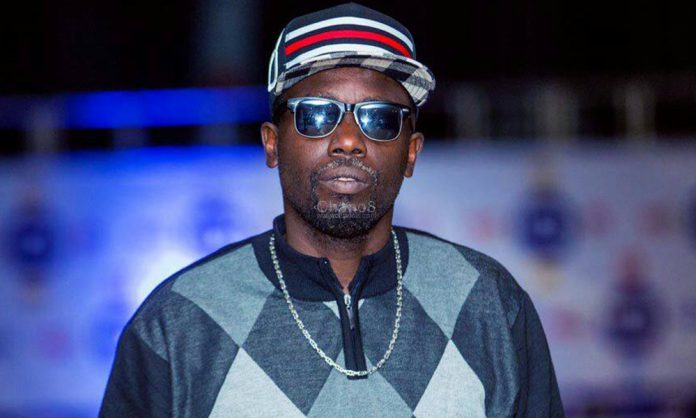
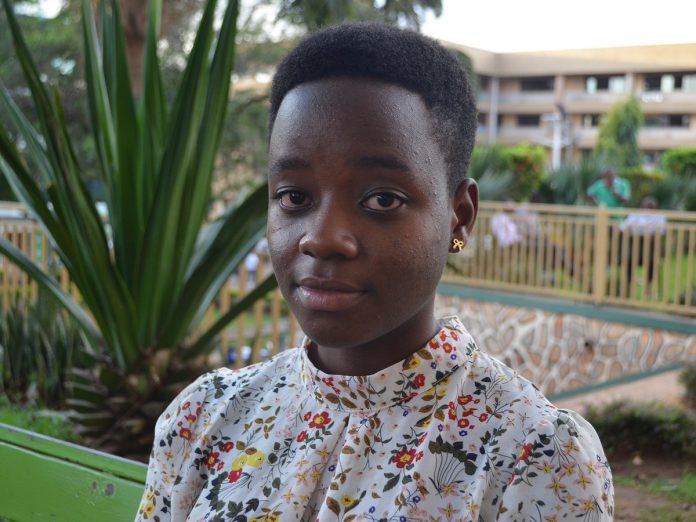


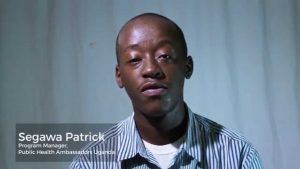 He is the Founder and Programme Manager at Public Health Ambassadors Uganda (PHAU) and CEO for Rabbit Factory Ltd; a specialty green business enterprise dedicated to improve the livelihoods of all youths and women through Rabbit Farming in Wakiso district. He is also working as an Advocacy Officer at Community Integrated Development Initiative (CIDI) with the Advocacy for Better Health Project in Nakasongola, Luwero and Kayunga District funded by PATH and USAID.
He is the Founder and Programme Manager at Public Health Ambassadors Uganda (PHAU) and CEO for Rabbit Factory Ltd; a specialty green business enterprise dedicated to improve the livelihoods of all youths and women through Rabbit Farming in Wakiso district. He is also working as an Advocacy Officer at Community Integrated Development Initiative (CIDI) with the Advocacy for Better Health Project in Nakasongola, Luwero and Kayunga District funded by PATH and USAID.